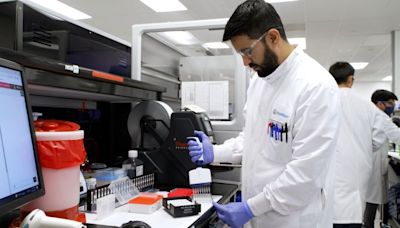Search results
The US Preventive Services Task Force (Task Force) recommends that adults age 45 to 75 be screened for colorectal cancer. The decision to be screened between ages 76 and 85 should be made on an individual basis. If you are older than 75, talk to your doctor about screening.
Jun 12, 2024 · Colorectal cancer screening saves lives. Screening can find precancerous polyps—abnormal growths in the colon or rectum—that can be removed before they turn into cancer. Screening also helps find colorectal cancer at an early stage, when treatment works best.
Learn about colorectal cancer screening tests and at what age you should start them. Find out if you might be at high risk and may need a colonoscopy sooner.
Learn about the methods used to screen for colorectal cancer. This fact sheet also discusses the advantages and disadvantages of several colorectal cancer screening tests.
Oct 20, 2023 · Our syndication services page shows you how. There are five types of tests that are used to screen for colorectal cancer: fecal occult blood test, sigmoidoscopy, colonoscopy, virtual colonoscopy, and DNA stool test. Learn more about these and other tests in this expert-reviewed summary.
Dec 6, 2022 · Colonoscopy takes about 30 to 60 minutes and screening is generally repeated every 10 years if no abnormalities are found and you don't have an increased risk of colon cancer. The pros: Colonoscopy is one of the most sensitive tests currently available for colon cancer screening.
May 18, 2021 · The USPSTF expanded the recommended ages for colorectal cancer screening to 45 to 75 years (previously, it was 50 to 75 years). The USPSTF continues to recommend selectively screening adults aged 76 to 85 years for colorectal cancer.
Screening for Colorectal Cancer. There are several tests, some of which can be done at home. Learn More. Colorectal Cancer Basics. Learn about symptoms, risk factors, screening, and treatment. Reducing Risk for Colorectal Cancer. The best way to lower your risk is to get screened regularly. Colorectal Cancer Statistics.
A colonoscopy can be used for both screening and prevention of colon cancer. It can find colon cancer in a person who has no symptoms (screening) and can also remove suspicious looking polyps before they develop into colon cancer (prevention).
The ACG recommends colonoscopy or fecal immunochemical testing (FIT) as the primary CRC screening method because of cost and clinical effectiveness. Several other two-step screening...


